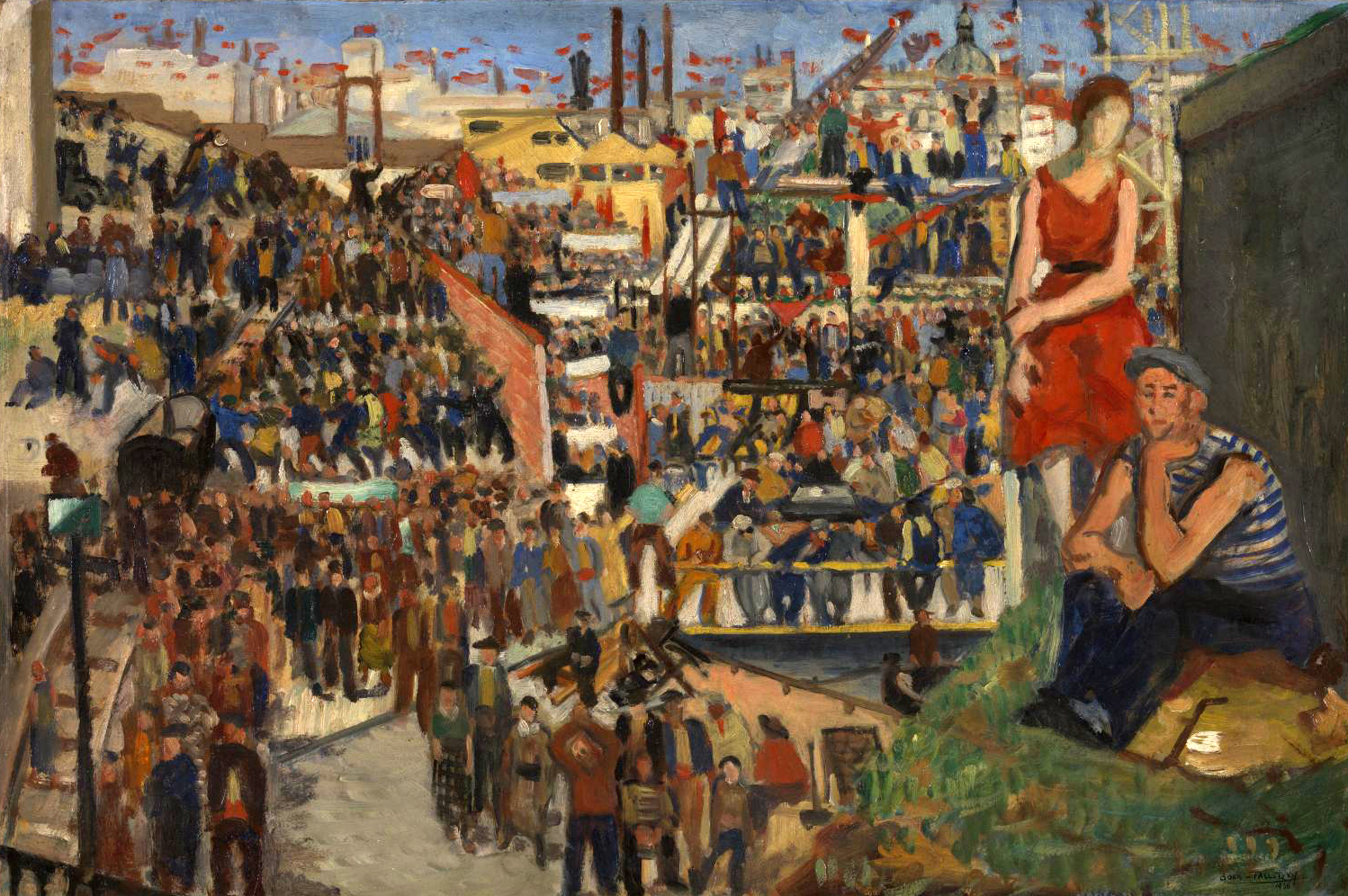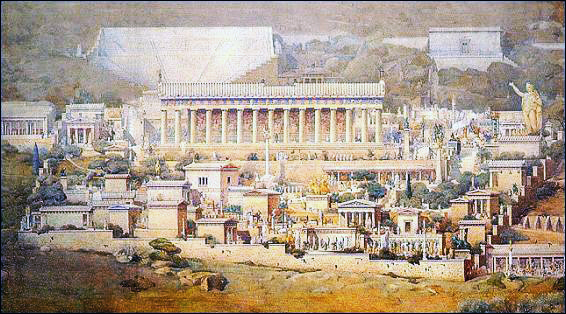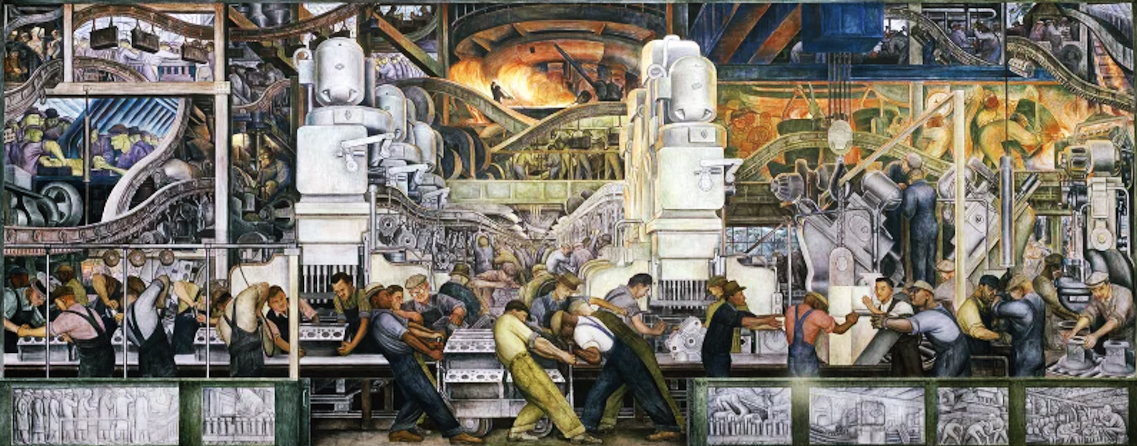Note that I say nothing about the political regime in this world of living automatons. I’m not trying to ask what it might be, because that question is irrelevant.
The deeper one sinks into uniformity from below, created and maintained by dirigisme with no other ideal than that of ever-increasing production, with a view to the well-being of the greatest number—in other words, the more it moves away from the type of hierarchical social organism that ceases to be a living pyramid as it once was in all civilisations and becomes a nameless, grey porridge brewed not by artists, still less by sages, but by clever people devoid of any awareness of extra-human values working for the immediate, in the narrowest sense of the word—the more it is like this the less the form of government matters.
There is still, theoretically at least, a difference between the condition of an assembly line worker in the Cadillac factories and that of an assembly line worker in some industrial complex in the Marxist world; between a saleswoman in a supermarket in Western Europe or the USA and that of a food distributor in a canteen anywhere behind the iron curtain. And the list of parallels could go on and on.
In principle, the worker in the ‘free world’ is not obliged to accept conditioning. When the siren sounds, or when the monster shop closes, he can do what he wants, go where he wants, use his leisure time as he pleases. Nothing forces him physically to buy drinks for his mates at the local café, or in monthly instalments the indispensable TV set or the no less ‘indispensable’ car. There are no political, or semi-political, semi-cultural meetings which he is forced to attend, on pain of finding himself, the next day, without a job or, worse still, suspected of deviationism and incarcerated—whereas in the USSR or China there are some and how! (according to the echoes we have of it; I repeat, I don’t know, first hand, the Marxist world).
Nothing would prevent a worker or an office employee or a saleswoman in the free world from using her leisure time as I would use it in his place if, for whatever reason, I had to work in a factory, an office or a supermarket to pay my bills. Nothing would prevent him provided that he finds a home secluded enough or soundproofed not to be bothered by the neighbours’ radio or television, and a manager or building owner complaisant enough to allow him to keep some domestic animal around, should that be his pleasure. Then perhaps his leisure hours would be truly blessed, and his modest flat a haven of peace.
Then perhaps he (or she) could, after spending an hour or two in silence, completely free himself entirely from the persistent noise of machines (or the light music imposed in certain workshops or shops); or the blinding glare of lights, of the atmosphere of people, have a quiet supper, alone or amid his family, walking his dog under the trees of some not too busy boulevard, and absorb himself, before the hour of sleep, in some nice read.
Then perhaps, but only then, the progress of machinery would guarantee him leisure, which he would use to cultivate himself, the more he would become ‘man’ again, in the most honest sense of the word; and the more one could, to some extent, speak of a ‘liberating technology’—although I could never be persuaded that even two hours a day spent in the depressing atmosphere of the factory or the office, or the modern department stores, are not, on balance, more exhausting than ten or twelve hours employed in some interesting work—in some art, such as that of the potter or the weaver of bygone ages.
But for this to happen, the worker, the proletarian, in the countries of the ‘free world’, who, in principle, can do what he wants after his working hours, would have to want something other than what he is conditioned to want. His ‘freedom’ resembles that of a young man, brought up since childhood in the atmosphere of a Jesuit boarding school, to whom one would say: ‘You are now of age. You are free to practice whatever religion you like’.
One student in ten million will practice something other than the strictest Catholicism; and the very one who breaks away from it will, most of the time, retain its imprint for the rest of his life.
In the same way, even in the ‘free world’ where, in theory, all ideas, all faiths, all tastes are accepted, the man of the masses and, increasingly, that of the ‘free’ intelligentsia, is, from childhood, caught up in the atmosphere of technical civilisation, and stultified by it and by all its ‘progressive’, humanitarian or pseudo-humanitarian, and pseudo-scientific publicity—the propaganda of ‘universal happiness’ by material comfort and purchasable pleasures. And he no longer wishes to break free of it.
One individual in ten million violently disengages from it, and turns his back on it, with or without ostentation, as the painter Delvaux did; as a few anonymous people do every day without even bothering to leave the banal building where they have made their room the sanctuary of a life that is anachronistic without necessarily appearing to be.
The only thing that might be said in favour of the ‘free world’, as opposed to its enemy brother, the Marxist world, is that it doesn’t take police sanctions against this exceptional individual—unless, of course, we express our hostility to today’s mores in the form of Hitlerism. And even in this respect there is a little less constraint than among the Communists in power: one can, everywhere in the ‘free world’, except, no doubt, in the unfortunate Germany, whose soul the victors of 1945 killed, have a portrait of the Führer on one’s bedside table, without fear of indiscreet inspections followed by legal sanctions.
What could be said in favour of the Marxist world, however, is that the latter has, despite everything, a faith—based on false notions and real counter-values, that is undeniable if we take a stand from the viewpoint of the eternal, which is that of Tradition, but finally, a faith—whereas the so-called ‘free’ world has none at all. The militant of values other than those exalted by official communist propaganda is likely to find himself one day in some ‘correction camp’ only if he pushes his temerity to the point of forgetting that he is in the underground, and must remain there.
______ 卐 ______
 Editor’s Note: This interview with a Serbian intellectual who lived in the Spanish island Gran Canaria (where I lived for ten months) woke me up ten years ago to the fact that today’s West is more totalitarian than Eastern Europe in the time of Breshnev. Savitri continues:
Editor’s Note: This interview with a Serbian intellectual who lived in the Spanish island Gran Canaria (where I lived for ten months) woke me up ten years ago to the fact that today’s West is more totalitarian than Eastern Europe in the time of Breshnev. Savitri continues:
______ 卐 ______
But the mass of the indoctrinated, who form the majority of the population there, will have the impression that they are working—and working hard—for the advent of something that seems great to them and that they love, whether it be the world revolution of the proletarians, the union of all Slavs under the aegis of holy Russia (this ideal is, it seems, that of more than one Russian Communist), or the domination of the yellow race through universal Communism. Industrial or agricultural production—that in the name of which so much eminently dull work has to be done—leads, in the final analysis, to such grandiose goals. It’s more exciting than the safe and neat little life culminating in the Saturday or Friday night drive to Monday morning.
Both worlds are, in fact, abominable caricatures of the hierarchical societies that once claimed to be, or at least wanted to be, as faithful images as possible of the eternal order of which the cosmos is the visible manifestation. The technical civilisation of the ‘free world’ opposes the unity in diversity which these societies possessed with the despairing uniformity of the man who is mass-produced, without direction, without impetus—not that of the water in a river, but that of a heap of sand whose grains, all insignificant and all similar, would each believe themselves to be very interesting.
The dictatorship of an increasingly invasive proletariat, on the other hand, opposes it with a uniformity of marching robots, all driven by the same energy: robots whose absence of individuality is a wicked parody of the deliberate renunciation of the individual, conscious of his place and role, in favour of that which is beyond him. The zeal for work and the irresistible push forward of these same automatons who believe they are devoted to the ‘happiness of man’ counterfeits the ancient efficiency of the masses who built, under the direction of true masters, monuments of beauty and truth: the pyramids, with or without floors, of Egypt, Mesopotamia or Central America; the Great Wall of China; the temples of India and those of Angkor; the Colosseum; the Byzantine, Romanesque, or Gothic cathedrals…
Of the two caricatures, the second, the Marxist, is arguably more clever in its crudeness than the other. To see this, one need only look at the number of people of real human worth who have fallen for it and who, in all sincerity, convinced that they were guided by an ideal of liberation and disinterested service, have swelled the ranks of the militants of the most fanatical form of Anti-Tradition that has yet appeared. This can be seen in Europe as well as in other regions—in India, in particular, where the Communist leaders are recruited mainly from the Aryan castes, strange as that may be. There is something in the very rigour of Communism that attracts certain characters eager for both discipline and sacrifice; something which makes them see the worst kind of slavery under the disguise of self-sacrifice, and the most laughable narrow-mindedness under the guise of a sacred intolerance.
The caricature of the ‘free world’ is less dangerous in the sense that it is outwardly ‘less resembling’, and therefore less capable to appeal to elite characters. But it is more dangerous in that, being less outrageous, it is at first sight less shocking to those whom Marxism repels, precisely because they have discovered in it the features of a false religion.
Having none of the attributes of a ‘faith’ it reassures them, encouraging them to believe that thanks to democratic ‘tolerance’—a tolerance which, as I have said, extends to all but us Hitlerites—they will be able to continue to profess in peace all the cults (all the exoterisms) which are dear to them: Christianity or Judaism in the West; Islam, Judaism, Hinduism, Buddhism, elsewhere; even one of these in the historical domain of another—why not, when the individual believes himself to be everything, and arrogates to himself, therefore, the right to choose everything?
They don’t realise that the very mentality of the technocratic world, with all its emphasis on the immediately and materially useful, the ‘functional’, and therefore the increasingly extensive applications of the sciences and pseudo-sciences at the expense of any detachment, is the antithesis of any disinterested thirst for knowledge as well as of any love of works of art and also of beings because of their beauty alone. They don’t realise that it can only accelerate the severing of any exoteric religion or philosophy from esotericism, without which it has no eternal value, and thus precipitate the ruin of all culture.
They don’t realise this because they forget that disinterested knowledge, the blossoming of art worthy of the name and the protection of beings (including man insofar as he responds to what his noun, Anthropos, ‘he who looks or reaches upwards’ would lead one to expect) go hand in hand, beauty being inseparable from truth, and culture being nothing if it doesn’t express both.
They forget—or have never known—that, deprived of their connection with the great cosmic and ontological truths they should illustrate, exoteric religions very quickly become fables to which no one attaches credence anymore; degenerate philosophies become idle chatter and political doctrines, recipes for electoral success; and that the technocratic world, with its eminently utilitarian approach to all problems, with its anthropocentrism coupled with its obsession with quantity, diverts even the best minds from the search and contemplation of eternal truths.
 This act of heroism by a very young child could not, alas, give the unfortunate beast back its lost home. But it has symbolic value. It proclaims, in its tragic simplicity, that in this world of the Dark Ages, almost at its end, where everything belongs to man, and where man belongs more and more to the Forces of the Abyss, it is better to die than to be born. It is similar, in its essence, to all the glorious suicides motivated by an intense disgust with the environment that was once respected if not admired, to the sudden revelation of one’s true vileness, for all vileness—especially all treason—is cowardice. It is similar to all similar acts of heroism—suicides or, sometimes, murders requiring even more despair than suicide—motivated by the awareness that the inevitable future, the consequence of the present, can only be hell.
This act of heroism by a very young child could not, alas, give the unfortunate beast back its lost home. But it has symbolic value. It proclaims, in its tragic simplicity, that in this world of the Dark Ages, almost at its end, where everything belongs to man, and where man belongs more and more to the Forces of the Abyss, it is better to die than to be born. It is similar, in its essence, to all the glorious suicides motivated by an intense disgust with the environment that was once respected if not admired, to the sudden revelation of one’s true vileness, for all vileness—especially all treason—is cowardice. It is similar to all similar acts of heroism—suicides or, sometimes, murders requiring even more despair than suicide—motivated by the awareness that the inevitable future, the consequence of the present, can only be hell.








